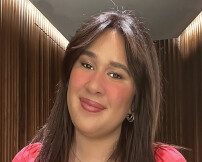Ka Hao Te Ra Katahi: Climate Crisis Generation
Mar 20, 2024

Nā Te Puawai Perenara-O’Connell
I am a part of the post settlement generation, the ones who have reaped the rewards of the mahi from our pakeke, our kaumātua, and our tīpuna. There is much to be grateful for, and while I may never have to face the challenges others did before me, I am part of the climate crisis generation, and this is a new challenge we should all be talking about.
I grew up on the shores of Te Waihora, listening to kaumātua tell me stories about when they could see the shingle bottom of the lake, how taoka species were plentiful. Now I stand at Te Waihora watching my lake, my heart, being used as a sink full of fertilisers and fossil fuels, and the dunes at Taumutu Beach becoming more unstable
as large swells break our special ecosystem. I have sat in the wharekai watching the waves from king tides break our coastline and flood the streams surrounding my marae.
When I was a tamaiti, I was shown videos of climate change impact around the world. Phrases like “environmental destruction, climate change, global warming and environmental crisis” were reoccurring topics in science class. The messaging was plain and simple; the climate is changing, and if we don’t choose to make change we will be forced to. This is not a path I thought would be presented to me here in Aotearoa, but this our reality.
Now as a rakatahi, I have a seat at the table, I am part of the kōrero about global warming, environmental crisis, climate adaptation and hapū resilience. I am starting to develop my own views and opinions, but the room doesn’t seem like the best place to voice my thoughts. When the opportunity came to be a part of the Kāi Tahu Climate Change Symposium and 25-year Settlement celebration, I knew this was the space I had been waiting for. A safe place for rakatahi, by rakatahi.
On day one I spent an afternoon learning about the concerns that sit front of mind, for the current and future generations of Kāi Tahu. With the support of Alice Dimond
and Sam Wixon, from Tokona te Raki, our rakatahi group participated in a “think tank”, where we discussed how our everyday actions and decisions impact the climate and how, if we combined our efforts and take tactical and deliberate action, we can have a future where the climate impacts aren’t scary because we will be ready for them.
Day two provided the opportunity to bring our whakaaro out into the open, inspiring our current leaders, and challenging their own ways of working. I am excited for our tribal future, not only in the climate space but for the future leaders our tupuna have inspired.
It would be bold of me to write a list, telling readers how we can make our kāika, takiwā, motu and ao tūroa a more environmentally conscious place. To put it simply, no matter how much action we take, it will not change our problems overnight; there are generations of lifestyle changes and impacts which have created our current situation. My tīpuna used to live at their pā, in their kāika, on the shores of Te Waihora. My kaumātua would use containers to scoop up whitebait from the streams and spear patiki on the lake edge. They were raised on the side of a healthy lake, which supported Kāi Tahu whānui.
That is not my reality due to colonisation and urban drift. I need to drive 50 minutes to my marae, to feel connected to my whānau, hapū and kāika. I shop at the supermarket, fill my basket with fruit, vegetables, and meat, compromised with hormones and chemicals. I can’t depend on Te Waihora as my pantry like generations before me. One day I hope my mokopuna can go to Te Waihora and provide dinner for their whānau. I hope many generations of Kāi Te Ruahikihiki are raised on the marae by our hapū who can teach and support their growth and learning instead of being raised in the malls, addicted to Fortnite.
In my time of learning I have been told there are two sides to every coin. On one side, there is the opinion of climate change not being a major threat or concern. On the other side, the opinion that there needs to be action taken now to delay the effects of climate change.
I believe if we focus on climate education and resilience, and support people who are unaware or in denial around the seriousness of climate change, we can fulfill our duty as kaitiaki of our whenua, as well as being the rakatira our tīpuna intended us to be.
I am a rakatahi asking my cousins, aunties, uncles, nieces, nephews and kaumātua to be courageous. We need to share the importance of climate adaption, educate our whānau, and make conscious efforts to reduce our climate impact.
I hope to be a part of the generation to lead climate initiatives for iwi Māori throughout Aotearoa. I need to do right by my tīpuna, for my mokopuna.

Te Puawai Perenara-O’Connell (Ngāi Te Ruahikihiki) lives in Ōtautahi and works for Tāwhaki, focusing on aerospace R&D and whenua rejuvenation for Kaitorete. Te Puawai is passionate about netball, climate adaptation, historical research, and the health of our waterways.